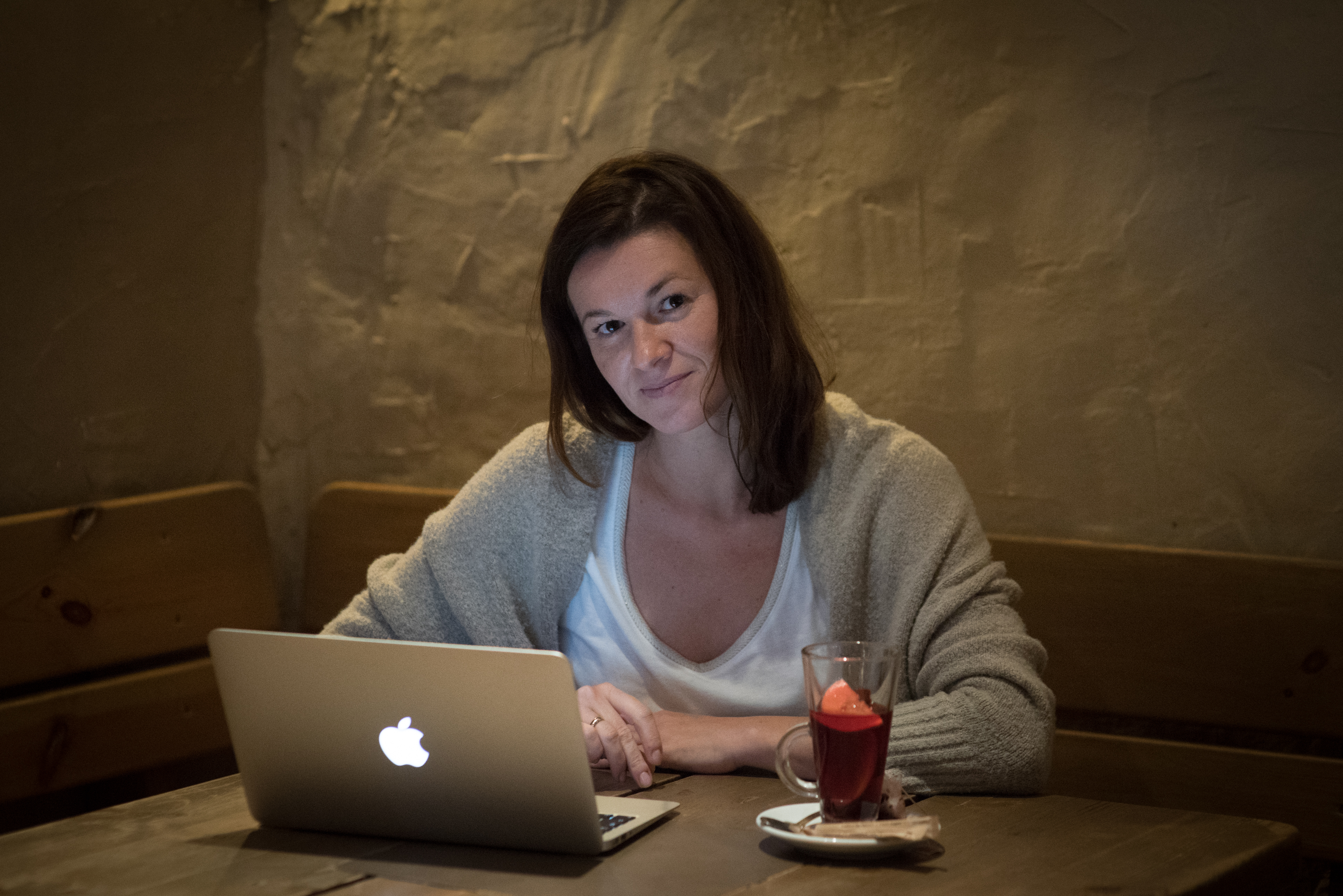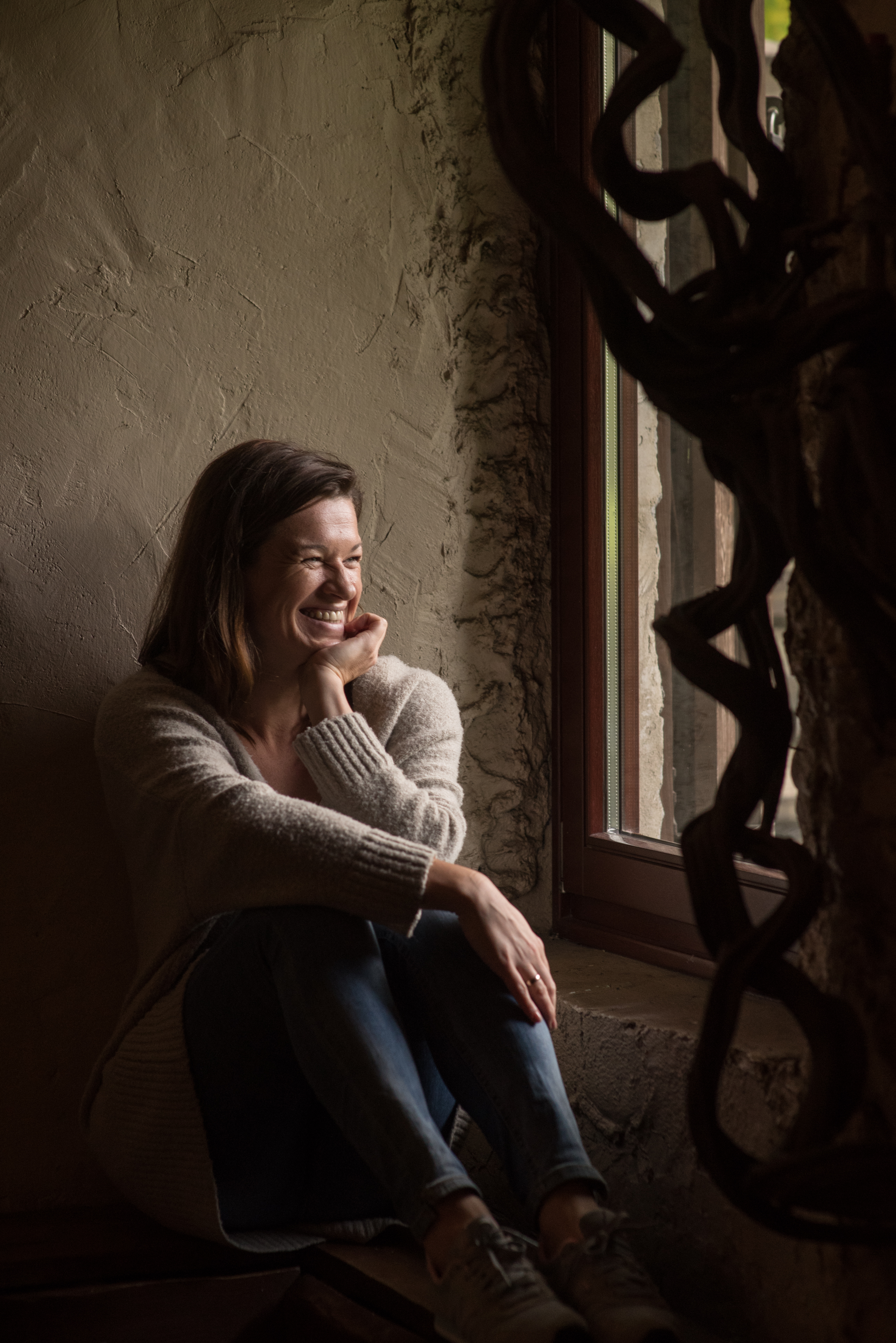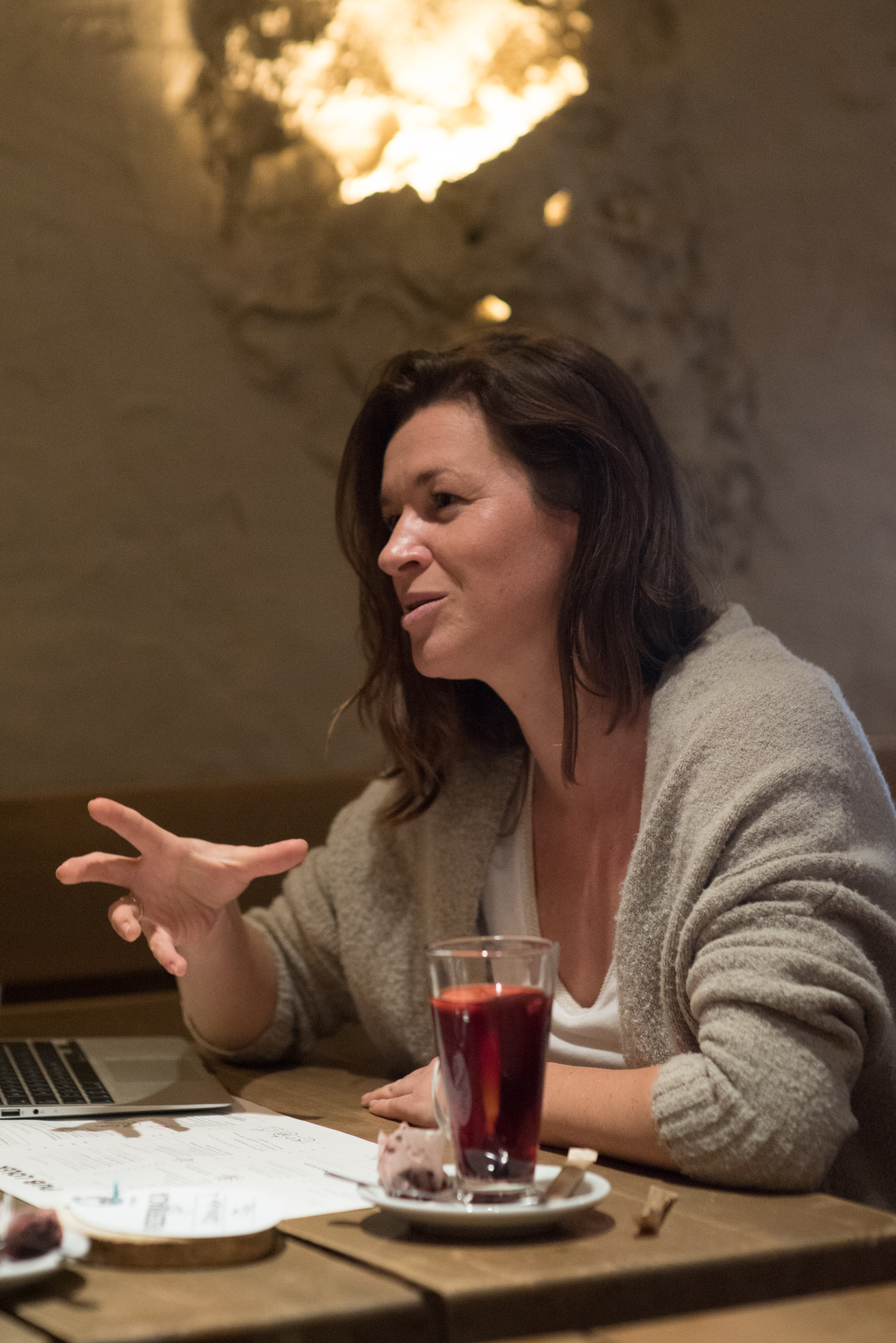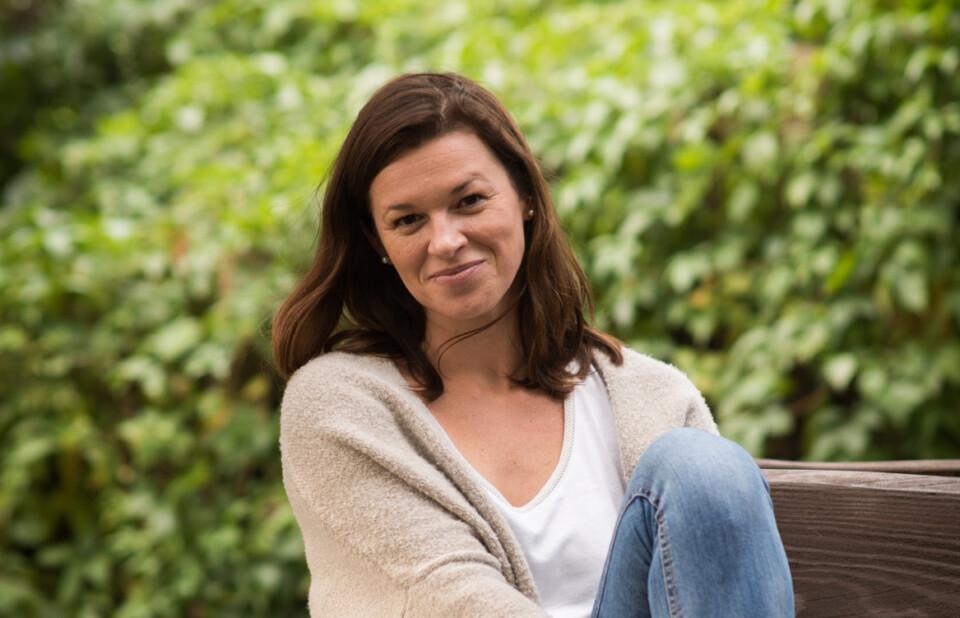R E N A T A
Warsaw | 2017

R E N A T A
City — Warsaw
Age — 37
Love life — Married, one son
Profession — External Communications Specialist in a law firm
Years in Warsaw — 6 in total
Location — Pub Lolek in Park Pole Mokotowskie
T H E W A R S A W S T O R I E S
‘I DON’T
STRIVE
FOR CONSTANT
HAPPINESS’

- What makes you really happy?
“Being peaceful. I don’t have a lot of time for that. I can really enjoy a peaceful weekend with my family, without any rushing, and with nothing on my mind. Having time for myself and spending time with friends also makes me happy. This doesn’t happen too often either, but it’s getting better. My son is growing up and doesn’t always need his mommy. Plus I feel that I really need it.”
- What is your best personality trait?
“It is hard for Polish women to say nice things about themselves, but I like to think of myself as a kind person. It’s not very difficult for me to make friends and I am always looking for ways to help people. They make fun of me at work, because I know how to muster patience for the very rude ones. Of course I can lose my patience as well, but I try to find the good in people. I think rude people probably had traumatic experiences in the past, and are trying to cover up their real feelings and true face behind a thousand masks. I also believe that small things, like smiling or chatting with someone in the office kitchen, can make a difference. Another personality trait is that I am quite ambitious in every aspect of life. I like this feeling of wanting more and wanting to be better and working really hard to achieve that. It makes me go ahead and improve myself. Life becomes boring and useless if you lose your curiosity. But you have to stay away from that toxic level of perfection. That doesn’t give you peace.
- What do you think makes you different than other people?
“I want to believe that people have the right to be unhappy. I don’t strive for constant happiness and success. There is a lot of discussion going on about depression and mental problems at the moment. People feel obliged to be happy, unique, passionate and successful. There is a lot of pressure to be something. We are bombarded with phrases like ‘10 ways to be happy’, ‘how to get the best job’. You’re constantly being told what you’re supposed to be. You can’t just be. I believe that it is okay to be unhappy and fall down, as long as you know how to get up. It’s not a popular belief. People ask me why I am being so pessimistic and why I want to be unhappy. But I believe you can’t be happy without experiencing unhappiness. Pretending that you don’t have negative emotions and plastering a smile on your face is so stupid. Of course I put on a mask as well at times, but even at the office I tell my colleagues when I’m in a bad place and I don’t want to talk to anyone. It’s important to listen to your own voice, not to the opinions of others. But that’s very difficult.”

- What is your biggest life lesson so far?
“I always think I’m lucky, because I didn’t have to go through a lot of misery in my life. But before I moved from Lisbon to Warsaw I was unemployed for eighteen months. That time taught me how to be more humble and patient. Before that, I was like a small kid who was stamping her feet: I want it now and I want this and that. Being unemployed made me realize life doesn’t work like that. It taught me something else as well – to stop having an opinion about things I haven’t been through. A lot of the ‘wise words’ I received back then were empty, because there was no real understanding behind it. It just irritated me. People disregarded everything I said, because they thought I shouldn’t be feeling those things. So now I know that even if I’m trying my best to understand what other people are going through, I can’t actually feel it, because I don’t really know it.” - What is the best thing that ever happened to you?
“My kid. He’s incredible. Very emotional, warm and very smart. He gave us a hard time when he was a baby, because he didn’t sleep for the first eighteen months. That was a difficult lesson. What that lesson was? How to control your stress and not kill your husband after a week without sleep; haha!”
- What is the best advice someone ever gave you?
“When I was fifteen years old, we were talking at school about Polish poetry from a man who had just lost his daughter. The teacher told us, ‘There will be a lot of events in your life you need to go through. You think that you will die when it happens. But you know what? You wake up the next day and you put your clothes on, drink your coffee and go to work. And it hurts. But you keep on going. And after some time you discover that you did survive.’ This made me realize there will always be lot of stuff going on in my life, but probably mostly things I can survive. I cry at the thought that one day my parents won’t be there to pick up the phone when I’ll want to share something with them. But I’ll keep going.” - What advice would you give other women in Europe?
“Be kinder to, and more patient with yourself. Accept that you aren’t superwoman. We should allow ourselves to stumble and fall every now and then, and expect others to pick us up. Especially in Poland, where women demand a lot of themselves. Women think they need to be super strong, be in charge of everything and prove themselves in every single field. The free-market economy is quite new in Poland, so being successful and having a career is not as established as in Western European economies. Women finally get an opportunity to be equal to men and we want to prove we deserve it, but the cost for women is much higher than for men. If I look at my friends and colleagues, women in Warsaw are constantly rushing between work and picking up the kids. Then we open our laptops again late at night to catch up on work.”” - What is your ultimate goal in life?
“That’s easy. In thirty years, let’s say when I retire, I would like to feel fulfilled. I don’t necessarily need to be successful, but I would like to feel that I was loyal to myself. That I didn’t spend my life just doing stuff from 9 to 5, but that I really enjoyed it. I also would like my kid to be a big-hearted person who won’t hurt other people.” - What is your biggest sorrow in life?
“Accepting who I am. I’m still not there and that makes me sad. I struggle so much with accepting that I have great qualities and bad sides and to feel okay with both of them. I spend a lot of time battling myself. I can’t just look at myself and think: you’re amazing. Hopefully I get there in my forties.” - What does Warsaw mean to you ?
“I never really liked the city. It’s a dynamic and vibrant place in terms of opportunities, and it’s very easy to move around, but it doesn’t give you space to breathe. For me it’s more the place where you work. I never really wanted to be here. I’ve lived in Lisbon for five years, but I came back because I’m stubbornly ambitious, and Warsaw was the only place that could offer me the exact job I wanted. Moving back to Warsaw was a bittersweet decision, because although it made sense from a professional and financial point of view, I feel that I belong in Portugal. I try to accept that we’re here and not somewhere else, and I enjoy the nice things I do in Warsaw with my family. But deep down I know that Warsaw isn’t the place I want to be 100% and forever. The city isn’t that beautiful and the weather doesn’t help. It bothers me that Polish people don’t want to extend warmth to each other. They never smile, never say ‘excuse me’ or ‘after you’. I don’t know if it’s because of the climate that people are depressed for half of the year, or because of our history. Maybe people are afraid to trust others or build warm relationships, because so many people betrayed each other during the communist years. The women here seem more stressed than in other European cities. I think because Poles like to have everything organized and do everything on time. Especially the older generation, who even consider waiting for a meal in a restaurant a waste of time. Just look at how they act in traffic. People start honking before the light even turns.”
Photos by Marta Ankiersztejn-Węgier

